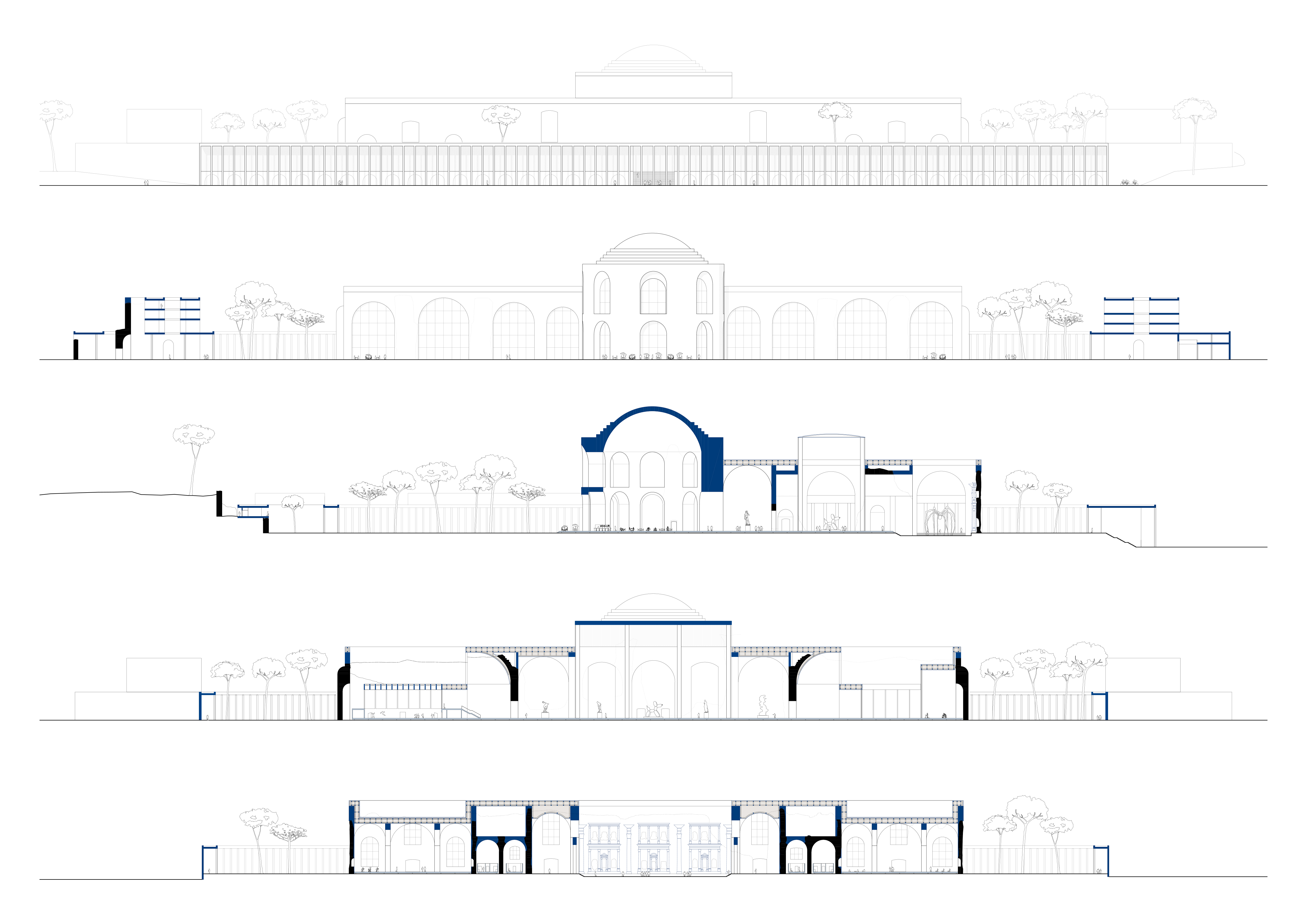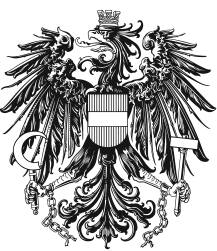Matthias Johannes Holzner
![]()
![]()
![]()
![]()
![]()
![]()
![]()
![]()
![]()
This thesis addresses the multifarious interfaces between architecture and monument preservation. This field of challenges and possibilities is characterized first and foremost by a specific tension between construction, conservation, and deconstruction. The first chapter begins with a historical overview of monument preservation up to current conventions and tendencies. The second chapter examines two exemplary case studies, which both differ radically in their approach to building in existing structures. First is Giorgio Grassi’s project in Sagunto, in the Province of Valencia, whereby he restores the space of an ancient Roman theater using contemporary methods and a principle of reconstruction. Second is the project of architecten De Vylder Vinck Taillieu in the Belgian municipality of Melle near Gent, in which they revitalize part of a decaying psychiatric clinic and integrate it as a deliberately unfinished fragment into their architectural program. These two approaches to dealing with “finality” in architecture are followed by two chapters which introduce Rome as a city of monuments paradigmatic for its approach to the preservation of built fabric. From this base, the thesis then takes a critical turn and looks at the thermal baths of Caracalla in the south of Rome (AD 206—216), taking this monumental “architectural asset” as a foundation for the design of a contemporary temple of luxury. In an ironic translation from antiquity to the present, the design proposes a significant project around the heart of this imperial thermal bath architecture—its mondanità—critically examining current trends in the culture of preservation in order to transform it into an upscale VIP location.
![]()
@counterintuitive_typologies #monument #protection #preservation #reconstruction #archeology #eternalcity #gentrification #luxuryindustries #caracalla #baths #lagrandebelleza #finality
Club Caracalla
TU Graz, 2021








This thesis addresses the multifarious interfaces between architecture and monument preservation. This field of challenges and possibilities is characterized first and foremost by a specific tension between construction, conservation, and deconstruction. The first chapter begins with a historical overview of monument preservation up to current conventions and tendencies. The second chapter examines two exemplary case studies, which both differ radically in their approach to building in existing structures. First is Giorgio Grassi’s project in Sagunto, in the Province of Valencia, whereby he restores the space of an ancient Roman theater using contemporary methods and a principle of reconstruction. Second is the project of architecten De Vylder Vinck Taillieu in the Belgian municipality of Melle near Gent, in which they revitalize part of a decaying psychiatric clinic and integrate it as a deliberately unfinished fragment into their architectural program. These two approaches to dealing with “finality” in architecture are followed by two chapters which introduce Rome as a city of monuments paradigmatic for its approach to the preservation of built fabric. From this base, the thesis then takes a critical turn and looks at the thermal baths of Caracalla in the south of Rome (AD 206—216), taking this monumental “architectural asset” as a foundation for the design of a contemporary temple of luxury. In an ironic translation from antiquity to the present, the design proposes a significant project around the heart of this imperial thermal bath architecture—its mondanità—critically examining current trends in the culture of preservation in order to transform it into an upscale VIP location.

@counterintuitive_typologies #monument #protection #preservation #reconstruction #archeology #eternalcity #gentrification #luxuryindustries #caracalla #baths #lagrandebelleza #finality
ARCHITEKT ANDREAS LECHNER
Attemsgasse 11
8010 Graz / Austria
![]()
Attemsgasse 11
8010 Graz / Austria
Staatlich befugter und beeideter Ziviltechniker
© Andreas Lechner. All rights reserved. Unless otherwise stated, all materials on this website and the ideas incorporated herein, as an instrument of professional service, are protected by copyright and other intellectual property rights belonging to Andreas Lechner, its affiliates or its licensors and all such rights are hereby asserted and reserved. No part of this website may be copied, reproduced, republished, posted, transmitted or distributed in any way for commercial purposes. Any modification or use of the information contained on this website for any purpose not explicitly permitted without prior written consent is a violation of the author’s intellectual property rights and is strictly prohibited. CV · Imprint
